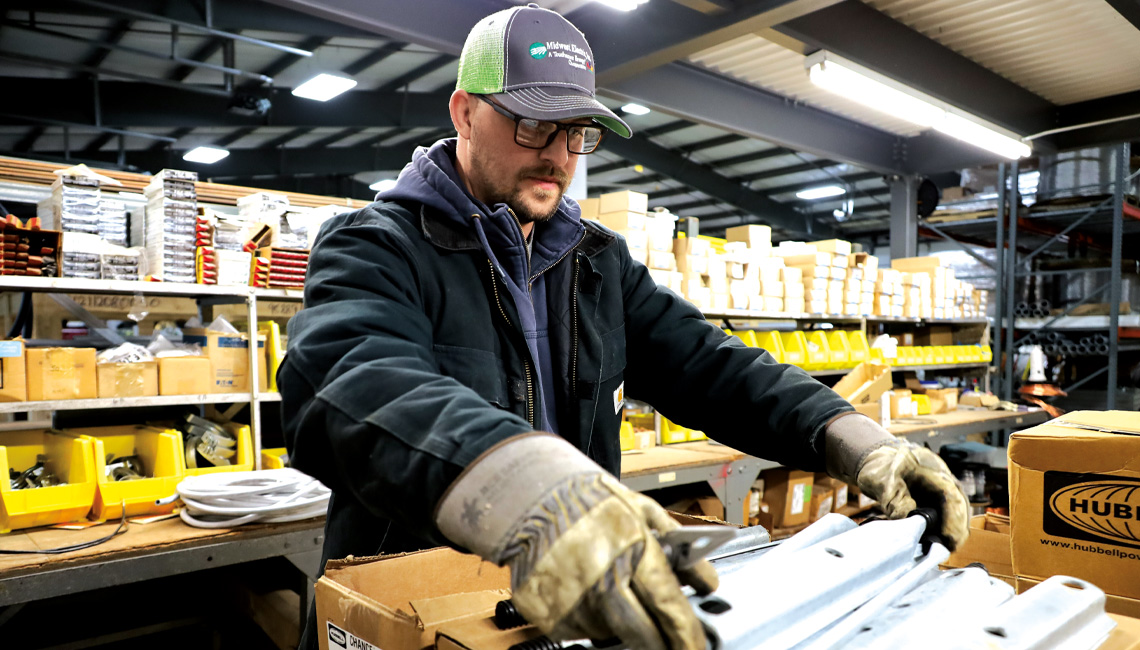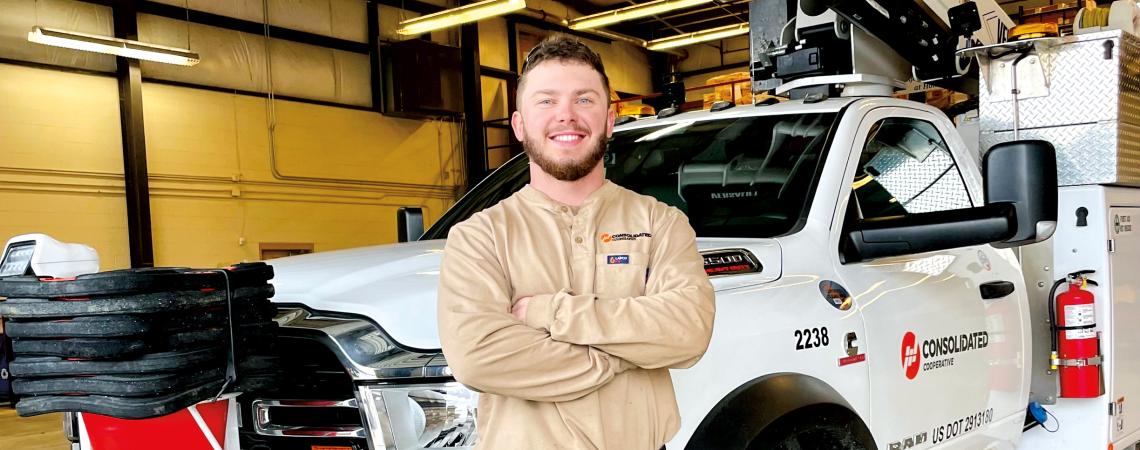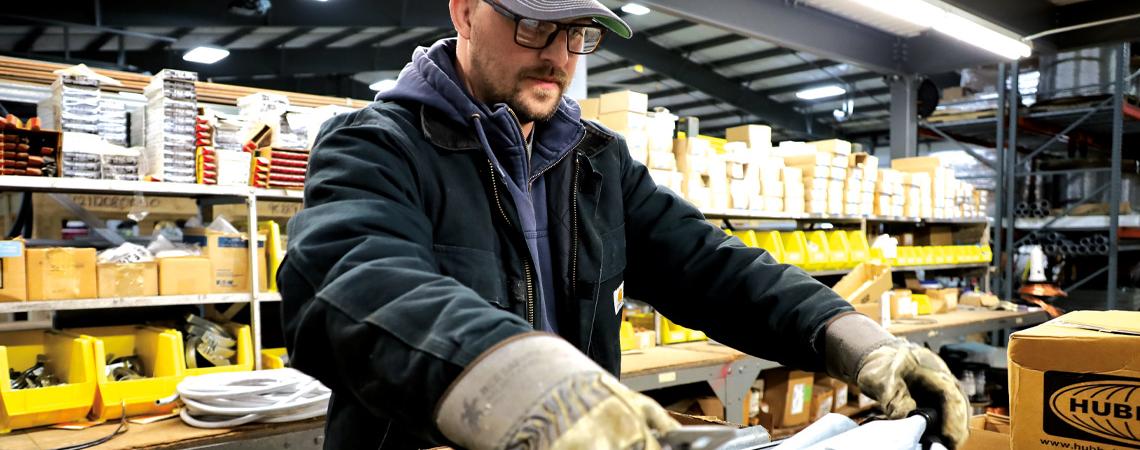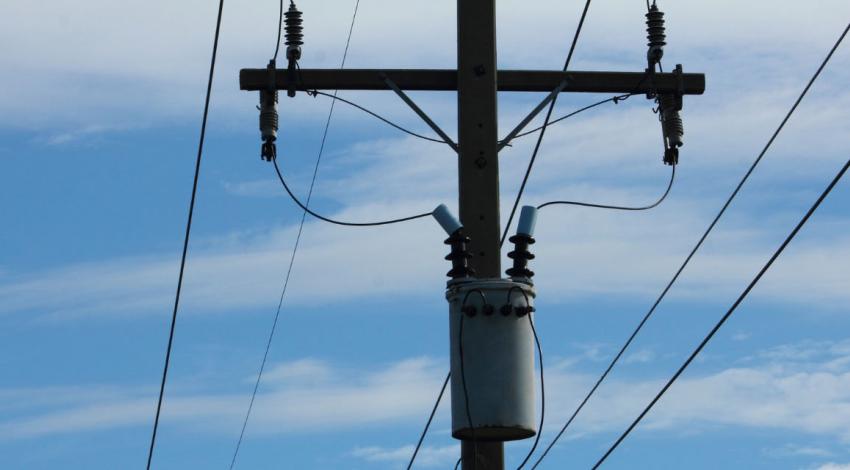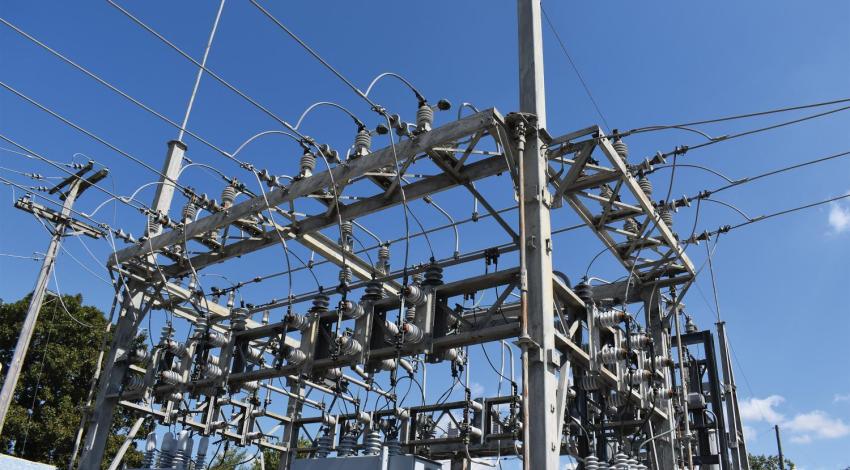Travis Wise has been an apprentice lineworker for only about a year, but already he’s experienced the kind of extreme weather that is both the scourge of the lineworker and a source of collective pride.
In June 2022, a derecho packing a macroburst, three tornadoes, and powerful straight-line winds left thousands without power in the midst of a heat wave. Six months later, the winter storm that hit Ohio just before Christmas brought snow and sub-zero temperatures with wind-chill readings in the minus-30 range, along with another round of power outages.
Despite the inhospitable weather conditions, Wise spent long days outdoors with his team of lineworkers at Consolidated Cooperative, returning power to customers who desperately needed it.
Travis Wise trained at a trade school near his home before he began his apprenticeship lineworker training for Consolidated Cooperative in Mount Gilead.
“In June, we were working 16 hours a day in 90-degree weather, for about a week,” says Wise, 22. “Then winter storm Elliott hit (in December) and we worked a lot of overtime when it was minus 30. We’ve seen the hottest of the hot and the coldest of the cold.”
“Sure, I want to be home,” Wise says. “But there are people out there who don’t have power and if we’re not out there doing this, then who is?”
That sense of mission, along with a strong work ethic and a focused mind, is what Ohio’s electric cooperatives look for when hiring apprentice lineworkers, says Kyle Hoffman, manager of the Central Ohio Lineworker Training (COLT) facility in Mount Gilead.
“It takes a certain mindset to want to go into this line of work — a very focused individual who loves to be outside, who loves to work with their hands,” says Hoffman. “Because when most people are seeking shelter from the storms, you’re going out into it.”
After they are hired by one of the 25 electric co-ops in Ohio and West Virginia, apprentice lineworkers begin rigorous training at COLT, learning the fundamentals of electricity; how to install, maintain, and repair power lines; and how to operate a variety of vehicles used in line work.
But first and foremost, they learn safety.
“It is a hazardous occupation,” Hoffman says. Most power lines in Ohio carry 7,200 volts of electricity. “The hazards of the occupation are what require the highest level of training. It takes a highly knowledgeable and highly skilled individual to do this kind of work.”
The knowledge and skill are earned over a four-year apprenticeship, including 8,000 hours of on-the-job training interspersed with 600 hours of instruction at COLT. The pride of COLT is the indoor training facility, completed in 2017. Its ceiling is high enough to accommodate 40-foot utility poles, which students learn to climb wearing pole climber boots with gaffs — metal spikes that penetrate the wood.
On the walls are banks of electric meters and rows of gear: climbing belts and safety harnesses, rubber gloves and sleeves, flame-retardant clothing, and an assortment of hand tools.
The 16-acre outdoor training area is similarly equipped with multiple poles rigged with power lines that are energized at a voltage lower than that of live distribution lines, to better manage the safety of the students while they learn. “If they make a mistake here, they’re going to walk away from it,” Hoffman explains.
About 150 apprentice lineworkers are engaged in training in any one year, along with 35 to 40 journeyman (fully trained and qualified) lineworkers who come for continuing education. After the four-year apprenticeship, a lineworker is fully qualified and also has earned a commercial driver’s license and 45 college credit hours.
For many of the students, this is not their first trip up a pole. Wise, for example, spent six months in lineworker training at a trade school near his childhood home of Knockemstiff, in Ross County. For Paul Pfenning, 31, a job with Midwest Electric in his hometown of St. Marys, in Auglaize County, came after eight years of military service, in the Air Force and Air National Guard, before attending a lineworker training program in Georgia.
Military service is excellent preparation for a lineworker, Pfenning says. “It’s a tough job, but that’s probably why I’m interested in it. In my military career, I’m used to structure, attention to detail, a strong work ethic,” he says. “As a lineman, attention to detail keeps you safe and gets you home at night.”
“When they heard I was going to go to do the lineman training, people said, ‘Do you really want to stand out in the cold and the blistering sun?’ To be honest, that stuff never bothered me,” Pfenning says. “I’ve been an outdoors guy all my life, and in the military, the mission never stopped just because it was raining.”
Like the job, the training is challenging work and doesn’t happen overnight, but Wise says he’s undaunted by the process.
“A lineman told me one time, ‘You know, you’re going to be an apprentice for such a short time, and you’re going to be a lineman for 40 years. You’re going to get your time in the bucket.’ So, I’m not in any rush to speed through it."
Lineworkers at Ohio’s Electric Cooperatives earn top salaries and benefits, and they’re in demand. Hoffman explains that demand for lineworkers is expected to continue growing in the coming years due to retirements and an increasing focus on improving the reliability of the electricity grid.
And some of the benefits are intangible, yet rewarding.
“When the lights go back on and you get that applause in the middle of the night, and people come out and say, ‘Thank you.’ You’re doing something more than just going to work each day,” Hoffman says. “That’s really what line work in the co-ops is all about.”
